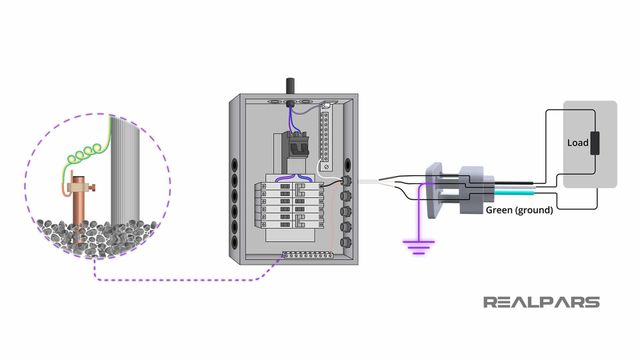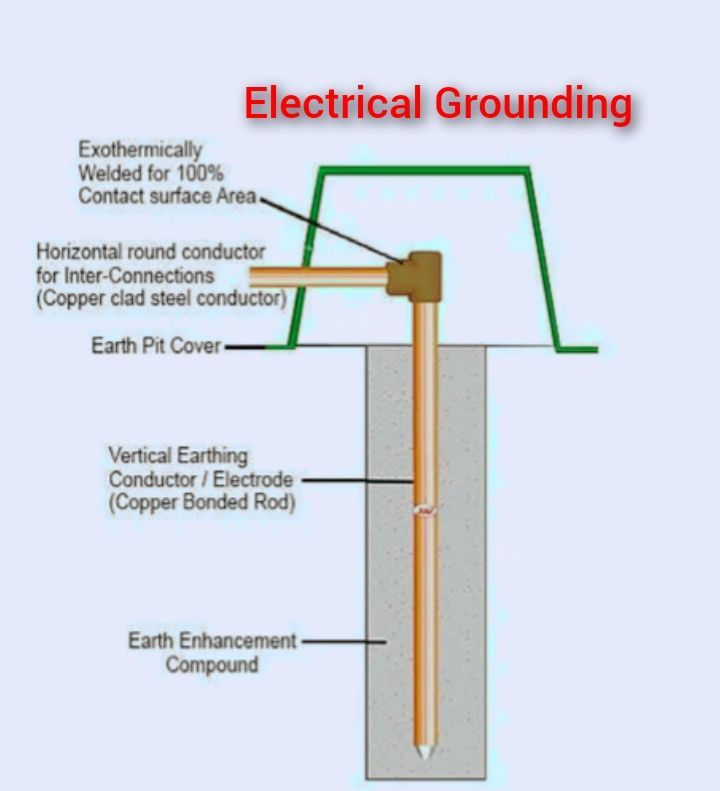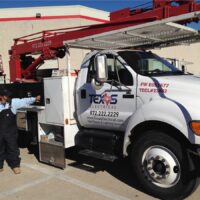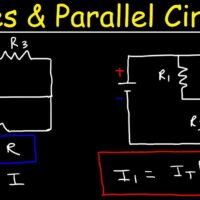Earthing is important for electrical appliances to ensure safety by providing a path for electrical faults to ground, reducing the risk of electric shock, and protecting against damage from power surges. Electrical appliances have become an integral part of our daily lives, from the humble toaster to the state-of-the-art refrigerator.
However, the presence of electricity in our homes also poses certain risks. Without proper earthing, there is a potential for electrical faults to occur, which can result in electric shocks or even damage to our appliances. In order to mitigate these risks, it is crucial to understand why earthing is important for electrical appliances.
By providing a path for electrical faults to ground, earthing helps protect individuals from electric shocks and also safeguards appliances from power surges. We will delve into the significance of earthing and why it should not be overlooked when it comes to electrical safety.

Credit: www.acdc-electric.com
The Importance Of Earthing
Earthing is an essential safety measure that is often overlooked when it comes to electrical appliances. However, it plays a critical role in preventing electrical hazards and improving appliance performance. In this blog post, we will explore why earthing is important for electrical appliances.
Preventing Electrical Hazards
Earthing is crucial for preventing electrical hazards that can pose a risk to both people and property. When an electrical appliance is not properly earthed, the excess electrical charge can build up and cause electric shocks, fires, or damage to the appliance itself.
By providing a path for the electrical current to flow safely into the ground, earthing protects against electrical faults and short circuits. If a fault occurs, the electrical current is directed through the earthing system, neutralizing the potential danger and reducing the risk of electrical shock or fire.
Proper earthing also helps to protect appliances from lightning strikes. Electrical surges caused by lightning can cause severe damage to electronic equipment. By grounding the electrical system, earthing dissipates the excess electrical energy and ensures that the devices connected to it are shielded from this potential danger.
Improving Appliance Performance
In addition to preventing electrical hazards, earthing also plays a significant role in improving the performance of electrical appliances. When an electrical appliance is not correctly earthed, it can experience electrical noise, power fluctuations, and interference from electromagnetic fields.
By establishing a reliable earth connection, these issues can be minimized or eliminated altogether. Earthing provides a stable reference point for electrical signals, reducing the noise and interference that can hinder the performance of sensitive electronic devices.
Furthermore, earthing helps to stabilize the voltage levels and ensures a consistent power supply for appliances. This, in turn, enhances their efficiency and extends their lifespan.
Overall, earthing is of utmost importance for electrical appliances as it prevents electrical hazards and improves their performance. It is crucial to ensure that all electrical devices are properly earthed to maximize safety and optimize their functionality.
Understanding Earthing
Earthing is crucial for electrical appliances as it provides a safe path for current to flow to the ground, preventing the risk of electric shock and protecting the appliances from damage. Without proper earthing, electrical faults can lead to dangerous situations and even cause fires.
Understanding Earthing Electrical appliances need to be grounded to protect users and the devices themselves. Understanding earthing is crucial for ensuring the safety and proper functioning of electrical appliances. In this section, we will explore what earthing is, how it works, and why it is vital for electrical appliances.
What Is Earthing?
Earthing is the process of establishing a connection between the electrical system and the ground. It provides a path for the flow of excess electrical current, ensuring that it safely dissipates into the ground. This process helps prevent electrical shocks and protects the appliances from damage caused by surges or faults.
How Earthing Works
Earthing works by creating a path for the excess electrical current to flow into the ground. This is achieved through the use of a grounding system, which typically involves a metal rod buried deep into the earth. When a fault or surge occurs, the excess current is directed through the earthing conductors and discharged safely into the ground, preventing potential hazards. In conclusion, understanding earthing is essential to ensure the safety and proper functioning of electrical appliances. Proper earthing protects against electrical hazards and equipment damage. Without a doubt, earthing plays a critical role in electrical safety and should never be overlooked. Read More: [Why Proper Earthing is Essential for Electrical Appliances](#)
Signs Of Poor Earthing
Proper earthing is vital for the safe and efficient operation of electrical appliances. Without adequate earthing, there may be signs indicating poor earthing, which can potentially lead to hazards. Recognizing these signs is crucial to prevent any electrical mishaps. Let’s look at the signs of poor earthing:
Electric Shocks
Electric shocks are one of the telltale signs of poor earthing. If you experience a mild tingling sensation or a sudden jolt when touching an appliance, it could signify inadequate earthing. Electric shocks indicate that the electrical current is not being directed properly to the ground due to poor earthing, posing a serious risk of injury.
Appliance Malfunctions
Appliance malfunctions can also signal poor earthing. If your electrical devices frequently exhibit erratic behavior, such as flickering lights, overheating, or sudden power surges, it could indicate a problem with the earthing system. Appliance malfunctions due to poor earthing not only hamper the device’s performance but also pose a fire hazard.

Credit: www.acdc-electric.com
Benefits Of Effective Earthing
Protection Against Electrical Faults
Effective earthing plays a crucial role in protecting electrical appliances and the users from potential electrical faults such as short circuits and overloads. By providing a safe path for current to flow into the ground, earthing safeguards against electric shocks and fires, and ensuring the safety of both people and property.
Enhanced Equipment Longevity
Proper earthing reduces the risk of damage to electrical appliances by preventing the build-up of static electricity and minimizing the impact of sudden power surges. This ultimately leads to increased longevity of the equipment, minimizing the need for frequent repairs or replacements and saving on maintenance costs.
Earthing Systems
Earthing is crucial for the safe functioning of electrical appliances. Different Earthing Systems such as TN-C-S, TT, and IT play a vital role in ensuring electrical safety.
Tn-c-s System
In the TN-C-S system, the combined Protective Earth (PE) and Neutral (N) are carried through the same conductor up to the consumer’s installation. It provides good protection against electric shocks.
Tt System
Under the TT system, the earth electrode is connected directly to the ground without any dependence on the supply system. It offers a high level of protection in case of faults.
It System
The IT system is commonly used in environments where continuity of supply is critical. Here, the Neutral is isolated from the earth, and any earth faults do not cause immediate power supply disruptions.

Credit: www.electricity-magnetism.org
Earthing Methods
There are various methods used for earthing electrical appliances, each with its own benefits and considerations. Understanding these different earthing methods is crucial to ensure the safety and efficient operation of your electrical equipment. In this article, we will explore three commonly used earthing methods: Rod Earthing, Plate Earthing, and Pipe Earthing.
Rod Earthing
Rod earthing is a widely used method that involves the installation of copper or galvanized iron rods deep into the ground. These rods, also known as earth electrodes, provide an effective path for the dissipation of the fault current into the earth’s surface.
During a fault or surge in electrical current, the rod acts as a medium to divert the excess electricity, preventing damage to electrical equipment and minimizing the risk of electric shock. The depth and placement of the rod play a crucial role in ensuring a low resistance path for the fault current.
Plate Earthing
Plate earthing involves the use of a copper or galvanized iron plate buried flat in the ground. The plate acts as an efficient conductor, providing a low-resistance path for fault current dissipation.
This method is suitable for areas with limited space as it requires less surface area compared to rod earthing. However, the soil resistivity and moisture content must be considered when determining the size and number of plates needed for effective earthing.
Pipe Earthing
Pipe earthing involves the use of a galvanized iron pipe driven deep into the ground. The pipe serves as both an electrical conductor and mechanical support, ensuring stability and electrical safety.
Similar to rod earthing, the depth and placement of the pipe are essential to achieve effective earthing. The pipe should penetrate the soil until it reaches the moisture-retaining layer, allowing for efficient dissipation of fault current.
It’s important to note that all earthing methods should be properly installed and periodically tested to ensure their effectiveness and compliance with electrical safety standards.
Earthing Installation Tips
Earthing installation is crucial for protecting electrical appliances. It provides a safe path for electrical currents and prevents the risk of electric shocks or fires. Proper earthing helps to discharge excess electricity, ensuring the safety and longevity of electrical devices.
Proper installation of earthing is crucial for the efficient and safe functioning of electrical appliances. It not only protects you from electrical shock but also extends the lifespan of your devices. Here we will discuss some important earthing installation tips that you should follow:
Proper Grounding Rod Placement
When it comes to earthing installation, one of the key factors is the correct placement of the grounding rod. The grounding rod should be installed in a location that ensures maximum contact with the earth. Ideally, it should be placed in an area where the soil remains consistently moist and conductive. Avoid installing the grounding rod in sandy or rocky soil as it may hinder the proper grounding process.
Furthermore, the grounding rod should be driven into the ground vertically, ensuring that at least 8 feet of the rod is in direct contact with the earth. This depth helps to achieve a low resistance path for the electrical current, minimizing the risk of electrical shock and damage to electrical equipment. It is essential to ensure that the grounding rod is securely grounded in the earth, using appropriate clamps and connectors to establish a reliable connection.
Regular Maintenance Checks
Earthing systems require regular maintenance checks to ensure their effectiveness. Periodically inspect the connection between the grounding rod and the electrical system to ensure it remains secure and undamaged. Pay close attention to corrosion or any signs of wear and tear that may compromise the grounding effectiveness.
Additionally, it is essential to monitor the resistance levels of the earthing system by conducting periodic tests. This can be done using an earth tester, which measures the resistance between the grounding electrode and the earth. By performing these maintenance checks, any potential issues can be identified and resolved promptly, reducing the risk of electrical faults and accidents.
By following these earthing installation tips, you can ensure the safety and optimal performance of your electrical appliances. Proper grounding rod placement and regular maintenance checks are crucial to creating a reliable electrical grounding system, protecting both yourself and your devices.
Regulations And Standards
Regulations and standards play a crucial role in ensuring the safety and efficiency of electrical appliances. Compliance with established guidelines such as the National Electrical Code (NEC) and International Electrotechnical Commission (IEC) standards is essential for maintaining a secure electrical environment.
National Electrical Code (NEC)
The National Electrical Code (NEC) provides regulations for the safe installation of electrical wiring and equipment in the United States. It sets minimum requirements to safeguard people and property from electrical hazards. Adherence to NEC helps prevent accidents and ensures electrical systems operate optimally.
International Electrotechnical Commission (IEC) Standards
The International Electrotechnical Commission (IEC) develops global standards for electrical technologies and devices. These standards promote harmonization in product design, testing, and certification on an international scale. Compliance with IEC standards ensures interoperability and safety across different regions.
Frequently Asked Questions Of Why Is Earthing Important For Electrical Appliances
Why Is Earthing Essential For Electrical Appliances?
Earthing is crucial to protect against electric shocks and ensure the safety of both the users and the appliances. It helps to redirect excess electrical current to the earth, preventing circuit overloads and potential damage.
What Are The Dangers Of Not Having Proper Earthing For Electrical Appliances?
Without proper earthing, electrical appliances pose the risk of electric shocks, short circuits, and fires. Inadequate grounding can lead to the build-up of electrical charges, increasing the likelihood of accidents and potential damage to the appliances.
How Does Earthing Contribute To The Longevity Of Electrical Appliances?
Earthing safeguards electrical appliances by mitigating the risk of power surges and fluctuations. This helps in extending their lifespan and overall efficiency, as the grounding system ensures a stable flow of electricity, reducing strain on the appliances’ internal components.
What Are The Signs That Indicate The Need For Earthing Maintenance?
Flickering lights, frequent circuit breakers, and tingling sensations from appliances can indicate faulty earthing. These signs should prompt immediate inspection and maintenance to ensure the effective functionality of the earthing system for electrical appliance safety.
Conclusion
Earthing plays a crucial role in ensuring the safety and efficient functioning of electrical appliances. It provides a path for the excess electrical current to escape into the ground, preventing the build-up of dangerous voltage levels. By reducing the risk of electric shocks and protecting against electrical fires, proper earthing is essential for both commercial and residential buildings.
So, don’t overlook the importance of earthing in maintaining a safe electrical environment. Ensure your appliances are properly grounded to safeguard yourself and your property.




